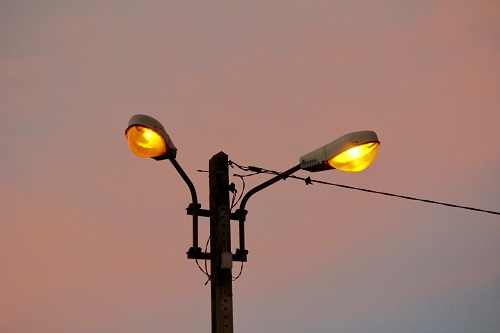Solar Street Lighting Business

Title of Business: Solar Street Lighting
Type: Consulting, Trading, and Installation
Key Products for Sale:
- Solar streetlights (complete systems)
- Solar panels
- LED light fixtures
- Batteries
- Poles and mounting structures
- Inverters and controllers
Technology Considerations:
- Use of high-efficiency monocrystalline or polycrystalline solar panels
- LED technology for lighting due to its low energy consumption and long lifespan
- Lithium-ion batteries for energy storage
- Smart controllers for automated and remote management
Market for the Products:
- Local governments and municipalities
2, Housing estates and gated communities - Commercial and industrial parks
- Rural and urban roadways
- Educational institutions
- Non-governmental organizations (NGOs) focusing on rural electrification
Key Inputs into the Business:
- Materials: Solar panels, LED fixtures, batteries, poles, inverters, and controllers
- Labor: Skilled technicians for installation, electricians, project managers
- Equipment: Lifting cranes, installation tools, vehicles for transportation
- Software: Monitoring and management systems
Product Preparation Process:
- Site survey and assessment
- Design and planning of the solar lighting system
- Procurement of materials and equipment
- Installation of poles and mounting structures
- Installation of solar panels, batteries, and LED lights
- Wiring and connection of all components
- Testing and commissioning of the system
- Training for maintenance and operation
Quality Considerations:
- Use of high-quality and durable materials
Adherence to industry standards and regulations
Regular maintenance and servicing plans
Warranty provisions for components
Certifications from relevant authorities - Cost of Investment:
Initial setup costs:
Office setup: Ksh. 50,000
Equipment and tools: The cost of a Solar Powered Street Light varies depending on factors such as size, wattage, application, and features. Generally, prices range from $50 (Ksh 6,000) to $108 (Ksh 13,500), excluding mounting accessories like poles.
Licensing and permits: Ksh. 10,000
Operational costs (first year):
- Salaries and wages: Ksh. 50,000
- Marketing and advertising: Ksh. 15,000 including social media, flyers, e flyers
- Transportation and logistics: Ksh. 20,000 within Nairobi would be an estimated cost of 20,000 Ksh while outside Nairobi would be an estimated cost of 40,000
Miscellaneous: Ksh. 30,000
Required Operational Infrastructure:
- Office space with adequate storage facilities
- Installation of vehicles and equipment
- IT infrastructure for monitoring and management
- Skilled labor force for installation and maintenance
Most Suitable or Viable Location of the Business:
- Urban centers with high demand for street lighting
- Regions with ongoing infrastructure development
- Areas with limited access to the grid
Potential Sources of Investment Capital:
- Bank loans
- Venture capital
- Government grants and subsidies
- Private investors
- Development funds and NGOs
Requirements for Effective Management:
- Strong project management skills
- Experienced technical team
- Efficient supply chain management
- Good customer relationship management
- Continuous training and development programs
Role of Mobile Phone and ICT in the Business:
- Use of mobile apps for remote monitoring and control of streetlights
- ICT for inventory management and tracking
- Online platforms for marketing and customer engagement
- Use of software for project management and planning
Statutory Regulations and Licences:
- Registration with the relevant county government
- Licenses from the Energy Regulatory Commission (ERC) Application Fees
Class C-2: Ksh 250
Class C-1: Ksh 500
Class B: Ksh 750
Class A-1 & A-2: Ksh 1,000
Compliance with the Kenya Bureau of Standards (KEBS)
Environmental impact assessment (EIA) approvals: NEMA charges EIA processing fees. It costs 0.1% of the project cost, derived from the certified Bill of Quantities (BQ). The minimum fee is Ksh. 10,000. Theres no cap on the maximum fees.
Pricing:
Solar street light installation: Ksh. 20,000 – Ksh. 70,000 per unit (depending on specifications)
Maintenance contracts: Ksh. 10,000 – Ksh. 30,000 annually per unit
Profitability:
Expected gross margin: 30-40%
Break-even period: 2-3 years
Potential for recurring revenue through maintenance contracts
Next Steps to Take:
- Conduct detailed market research to identify potential clients and opportunities.
- Develop a comprehensive business plan and secure funding.
- Set up the office and acquire necessary equipment and materials.
- Hire skilled personnel and provide necessary training.
- Launch marketing and outreach programs to attract clients.
- Establish partnerships with suppliers and stakeholders.
- Start with pilot projects to build a portfolio and reputation.
- Scale the business based on the initial success and market demand.

